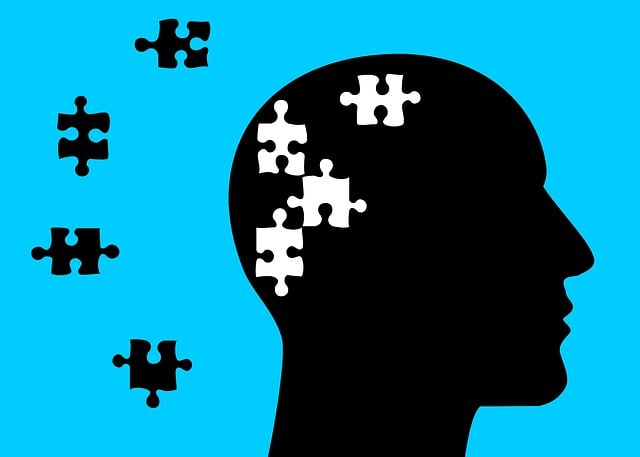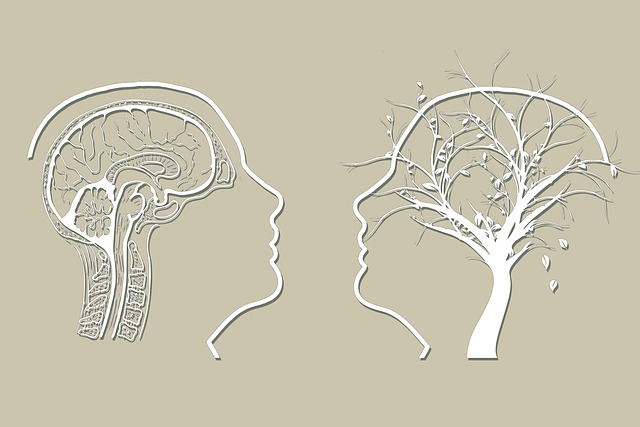Understanding Mental Health is key to designing effective educational programs, such as those offered by Wheat Ridge Neuro Disorders Therapy. By focusing on holistic well-being and employing interactive methods, safe spaces can be created for open discussions about mental health needs and coping strategies. Clear learning goals, diverse teaching techniques, cultural sensitivity, and feedback mechanisms ensure engaging modules that cater to various learners. A strategic approach with trained facilitators, regular training, emotional intelligence, stress management, and resilience-building practices culminates in a powerful program that promotes long-term mental well-being.
“Unveiling the power of education, this article explores the art of designing comprehensive mental health programs, with a specific focus on the Wheat Ridge Neuro Disorders Therapy approach. We delve into two key aspects: establishing a robust foundation by understanding mental health and its nuances, and crafting engaging learning modules that resonate with diverse learners.
Furthermore, we navigate successful implementation strategies, ensuring these educational initiatives thrive within the Wheat Ridge Neuro Disorders Therapy framework.”
- Understanding Mental Health: Creating a Foundation for Education
- Designing Effective Learning Modules: Strategies and Techniques
- Implementation and Support: Ensuring Success in Wheat Ridge Neuro Disorders Therapy Programs
Understanding Mental Health: Creating a Foundation for Education

Understanding Mental Health is a foundational step in designing any educational program, especially those focused on wellness and self-care. It’s essential to define mental health as more than just the absence of illness; it encompasses emotional, psychological, and social well-being. This inclusive approach recognizes that mental health is a vital component of overall health and daily functioning. By starting with this understanding, educators can create safe spaces for open discussions, encouraging participants to recognize their own mental health needs and develop strategies for managing them effectively.
In the context of Wheat Ridge Neuro Disorders Therapy, for instance, establishing this foundation could involve teaching Mind Over Matter principles, where individuals learn to challenge negative thought patterns and build resilience. Similarly, incorporating Stress Reduction Methods can empower people to manage stressors that contribute to mental health issues. Additionally, Healthcare Providers can benefit from Burnout Prevention Strategies, ensuring they prioritize their own mental well-being while supporting others.
Designing Effective Learning Modules: Strategies and Techniques

Designing effective learning modules is a key aspect of creating a successful mental health education program. Each module should be structured with clear goals and objectives, ensuring that content is engaging, relevant, and accessible to all participants. Incorporate a variety of teaching techniques such as interactive discussions, case studies, role-playing scenarios, and multimedia resources to cater to diverse learning styles. For instance, Wheat Ridge Neuro Disorders Therapy has successfully utilized self-reflection exercises and visual aids to enhance understanding of complex topics like emotional healing processes.
When designing modules on specific themes like self-esteem improvement or trauma support services, it’s essential to create a safe and supportive environment. Use anonymous questionnaires, small group activities, and peer mentoring to foster open communication. Ensure that materials are culturally sensitive and inclusive, allowing participants from various backgrounds to relate and benefit from the program. Regular feedback mechanisms should be built into the curriculum to continuously improve learning outcomes and tailor content to meet the evolving needs of the learners.
Implementation and Support: Ensuring Success in Wheat Ridge Neuro Disorders Therapy Programs

Implementing a mental health education program requires a robust strategy to ensure its success, especially when focusing on specialized areas like Wheat Ridge Neuro Disorders Therapy. A supportive environment is pivotal for participants’ well-being and engagement. This includes allocating dedicated resources, such as trained facilitators who can guide sessions and offer continuous support. Regular training sessions for these facilitators are essential to keep them updated with the latest therapeutic techniques, fostering an effective learning experience.
Additionally, integrating practices like Emotional Intelligence, Stress Management, and Resilience Building into the program curriculum enhances its impact. These strategies empower individuals to navigate challenges, manage stress, and boost their overall mental resilience. By incorporating such methods, the Wheat Ridge Neuro Disorders Therapy programs can offer holistic support, promoting not just recovery but also long-term mental well-being.
Mental health education programs, such as those offered by Wheat Ridge Neuro Disorders Therapy, thrive on a robust design that combines solid foundational knowledge with practical, effective learning modules. By understanding mental health comprehensively and employing strategic teaching techniques, these programs can significantly improve outcomes for individuals seeking support. A successful implementation strategy, including adequate support systems, ensures that educational initiatives are not just delivered but deeply absorbed, fostering healthier minds within the community.














